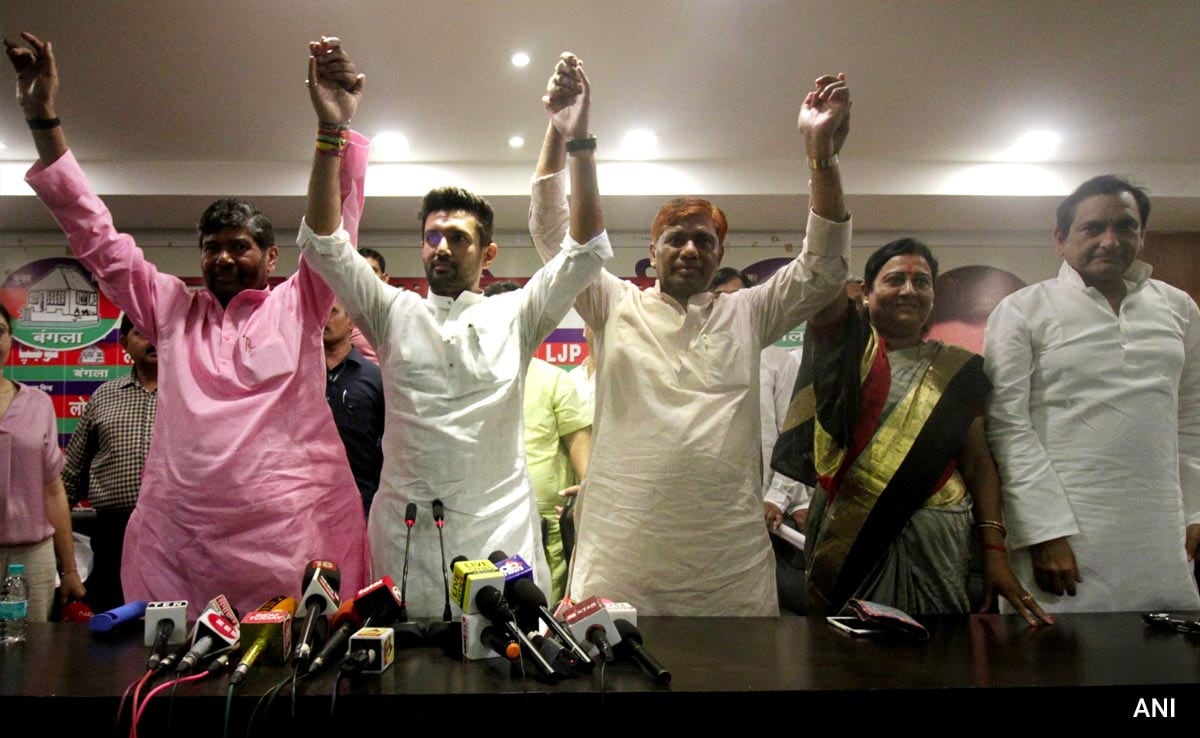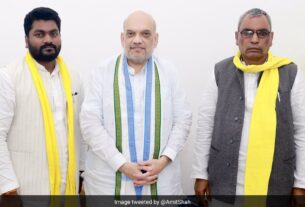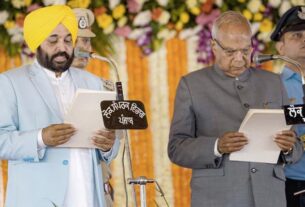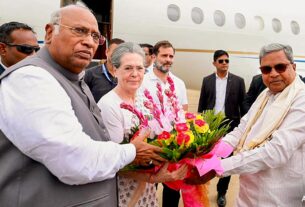The Bharatiya Janata Party’s repeated push to unite the warring uncle and nephew duo of long-time ally Lok Janshakti Party is part of its larger strategy to stitch together a coalition of caste groups formidable enough to challenge the mighty “Luv-Kush” (Kurmi-Koeri) and “Muslim-Yadav” alliance powering the Mahagathbandhan in Bihar. The BJP has slowly but steadily tried to court allies after it found itself in dire straits following the sudden break-up with Chief Minister and Janata Dal (United) boss Nitish Kumar last year. While walking out of the NDA alliance, Mr Kumar also took away all other parties in Bihar, leaving only the Pashupati Paras faction of the Lok Janshakti Party as a BJP ally.
Denting the “Luv-Kush” vote
The appointment of Samrat Choudhary, a Kushwaha (traditionally Koeri caste) leader who sports a turban and claims he will remove it only after dethroning Nitish Kumar, as the state BJP chief is also in line with its ambition to break away Extremely Backward Classes votes from the JD(U).
Kurmi and Koeri castes, largely comprising landowning farmers and vegetable growers, which together constitute about 10 per cent of Bihar’s population, are believed to have traditionally sided with Nitish Kumar. By projecting a Kushwaha leader as the Chief Ministerial face for the next Assembly elections, to be held soon after next year’s big general elections, the BJP is angling to slice off a core voter base from the Mahagathbandhan ahead of the 2024 Lok Sabha polls.
Mr Choudhary has been with both the JD(U) and RJD before he joined the BJP in 2017. Son of former minister Shakuni Choudhury, he was considered a blue-eyed-boy of RJD patriarch Lalu Prasad Yadav, and was inducted into the state cabinet when he wasn’t even 25-years-old, but was later dumped after controversy over his age.
While Rajput, Bhumihar, Kayasth, Kurmi, Brahmin, Dalit, Muslim and Yadav communities have all had representatives as Chief Ministers in the past, the Kushwaha community is yet to see a representative hold the top job, baring a five-day stint of Satish Prasad Singh, who held the post for just five days in 1968. Samrat Choudhary, who, unlike his predecessors, is very aggressive in his attack on the government, is being groomed for the top job.
The invitation to Upendra Singh Kushwaha of the Rashtriya Lok Samta Party for the big NDA meeting in Delhi tomorrow is another move aimed to cut down Nitish Kumar’s influence.
Once considered the shadow Chief Minister of Bihar, and a close confidante of JD(U) boss Nitish Kumar, Ramchandra Prasad Singh, or RCP Singh, joining the BJP in May after being denied renomination to the Rajya Sabha, which forced him to quit the Union cabinet, is another significant win for the BJP. Nitish Kumar and RCP Singh are both from the Nalanda district and Kurmi caste, and the BJP might try to pit the two against each other to eat into Mr Kumar’s electoral influence.
Dalits, other caste calculations
The Most Backward Castes which had voted for the NDA in the last elections are supporters of Nitish Kumar, and are believed to have walked away with him.
The non-Yadav OBCs (Other Backward Castes), Dalits, Yadavs, and Muslims are firmly behind Tejashwi Yadav’s Rashtriya Janata Dal. It is here that the BJP wants the re-unification of late Ram Vilas Paswan’s Lok Janshakti Party — now split into Lok Janshakti Party (Ram Vilas) and Rashtriya Lok Janshakti Party. A united LJP, which commands significant Dalit and Mahadalit votes, and getting Jitan Ram Manjhi and his Hindustani Awam Morcha into the NDA, will give the BJP a foothold into the Dalit voter base. Mr Manjhi has also been invited to the NDA meeting tomorrow.
Mukesh Sahani of the Vikassheel Insaan Party has also been invited to join the NDA. A leader of the Nishads (traditionally fisherpeople), who account for around 15% of the population of Bihar and UP, Mr Sahani can steer EBC votes away from Nitish Kumar. However, Mukesh Sahani, popularly called ‘Son of Mallah’, harbouring Chief Ministerial ambitions could be a wrench in the works for BJP’s carefully curated caste arithmetic.
There are 40 Lok Sabha constituencies in Bihar. In the 2019 general elections, the BJP-led NDA won a thumping victory, bagging 39 seats. While the RJD, the then main opposition party in Bihar, got no seats, the Congress managed to get one.
BJP had won 17 seats, JD(U) 16, and LJP 6.




